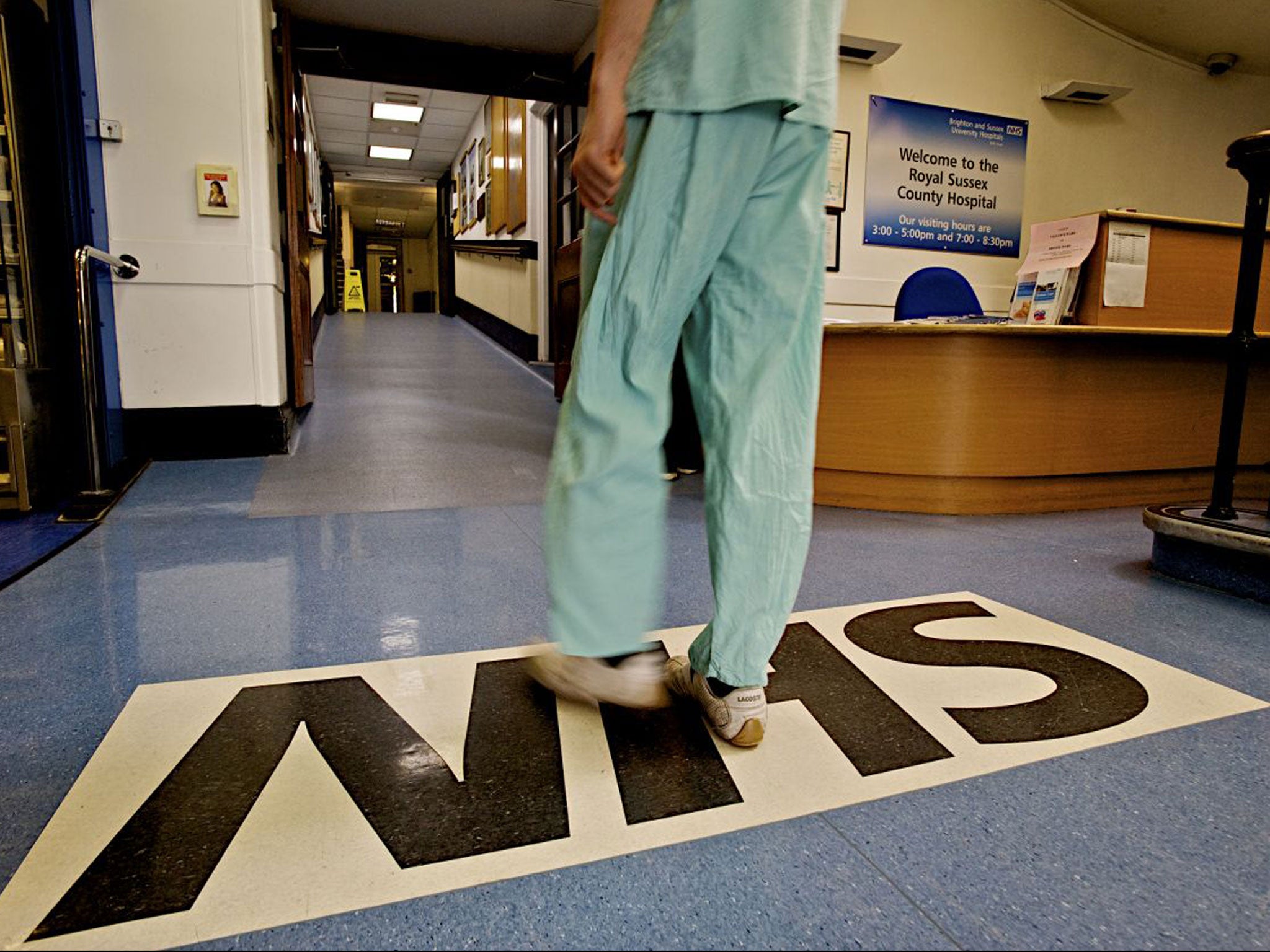Our next Prime Minister will be decided in the wards of the NHS
Inside Westminster: A tiny infectious agent could have more impact on the outcome of the next election than David Cameron, Ed Miliband and Nick Clegg combined

It is a question that obsesses political journalists: when people make their way to polling stations next May, what are the factors that will weigh on their mind?
Will they be swung by their empathy or antipathy towards political leaders? Will they vote on the basis of who will run the economy most competently or who they trust most to look after the NHS?
As the conference season comes to its conclusion it is increasingly apparent that all three main political parties believe that despite the multitude of issues facing the country in 2015 the keys to No 10 will only be delivered via the wards and waiting rooms of the NHS.
For Labour, trailing badly in the polls on the key indicators of leadership and economic competence, they know that a successful campaign has to be based on making the NHS the main issue of the election.
That means scaring voters into believing that a future Conservative government would starve the NHS of resources, put lives at risk and undermine fundamental principles. Ed Miliband’s key pledge of a £2.5bn funding boost is designed starkly to differentiate Labour from the Tories on the NHS.
In contrast, the NHS is never going to be an area of strength for the Conservatives – but it is a “brand weakness” that must be neutralised if the party is to win power. Thus last week in Birmingham, David Cameron promised that a future Tory Government would protect the NHS from future spending cuts while trying to link its future success to an area where the Tories do have advantage. “You can only have a strong NHS if you have a strong economy,” was his message.
Senior Coalition ministers say that behind the scenes there is a growing consensus that the Government will back this up with some extra money for the NHS in George Osborne’s Autumn Statement. Jeremy Hunt has warned the Treasury that without it, the financial pressures on the system in the first few months of next year could push parts of the NHS to a financial tipping point. Last year, 66 NHS trusts were in the red – incurring overspends of more than £750m.
Some believe that, without a cash injection, the NHS as a whole will slip into the red this year for the first time since 2005 – handing Labour a welcome campaign slogan.
At the same time, targets to treat A&E patients within four hours and those on waiting lists for planned treatment within 18 weeks have also been slipping. Even targets for treating cancer patients have been missed in the past six months.
The truth is that, all other things being equal, these pressures are probably manageable in the short term and this favours the Tories. But there is one great unknown – and that is what happens this winter and in particular the extent of seasonal flu.
Over the past few years flu rates have been well below the historical average and the NHS had coped. But health professionals and politicians alike are aware this may not continue.
A spike in flu this winter could very quickly lead to thousands of cancelled operations, unsustainable pressure on GP access and make the NHS’s perilous financial predicament significantly worse.
That in turn would lead to politically disastrous stories and images of frail, elderly patients on hospital trollies, cancer patients who’d had their operations cancelled and patients waiting hours to be seen by A&E. That is a nightmare scenario for the Conservatives but there is only so much they can do to prevent it or mitigate its consequences.
It is strange but probably true to say that a tiny infectious agent could have more impact on the outcome of the next election than David Cameron, Ed Miliband and Nick Clegg combined.



Join our commenting forum
Join thought-provoking conversations, follow other Independent readers and see their replies